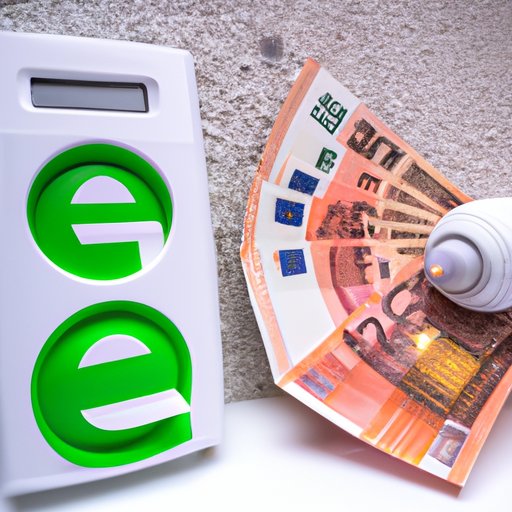Introduction
As energy prices continue to rise, it’s important to understand which appliances are using the most energy in your home. By understanding the energy efficiency of different appliances, you can make informed decisions on how to reduce your energy costs. This article will explore what appliances use the most energy and offer tips for choosing energy-efficient models.

Comparing the Energy Efficiency of Different Appliances
When it comes to comparing the energy efficiency of different appliances, there are a few key factors to consider. The first is the energy use rating (EUR). This rating system measures how much energy an appliance uses over a given period of time. An appliance with a higher rating will use more energy than one with a lower rating. In addition to the EUR, other factors that affect energy efficiency include the type of appliance, its age, and how often it is used.
When shopping for new appliances, look for those with energy efficient ratings. Many manufacturers have started labeling their products with energy star ratings, which indicate the level of energy efficiency. For example, a refrigerator with an energy star rating of 4 or 5 stars is considered highly efficient and will use less energy than one with a lower rating.
Another way to compare energy efficiency is to look at the annual energy consumption. This is the amount of energy used by an appliance in a year. You can find this information on the product label or online. Generally speaking, a higher annual energy consumption indicates an appliance that is not as efficient.
What Home Appliances Cost the Most to Operate?
While all household appliances use some form of energy, some cost more to operate than others. Air conditioners, clothes dryers, and refrigerators are some of the most energy-consuming appliances in the home. Other high-energy-consuming appliances include hot water heaters, dishwashers, and ovens.
The cost of operating these appliances depends on several factors, including the size and type of appliance, the energy source used, and how often the appliance is used. For example, a large air conditioner that runs constantly will be more expensive to operate than a smaller unit used only occasionally. Additionally, electric appliances tend to cost more to operate than gas-powered ones.

Tips for Reducing Energy Use in Common Household Appliances
In addition to choosing energy-efficient models, there are other ways to reduce the energy use of common household appliances. One of the easiest ways to cut down on energy costs is to use appliances only when needed. This means turning off lights and unplugging appliances when not in use. You can also set your thermostat to a lower temperature in the summer and a higher temperature in the winter to reduce energy use.
Investing in energy-efficient models is another great way to reduce energy costs. Look for appliances with energy star ratings and read reviews to find out which models are the most efficient. You may even qualify for a tax credit or rebate if you purchase certain energy-efficient appliances.
The Pros and Cons of Smart Appliances and Their Energy Use
Smart appliances are becoming increasingly popular in homes due to their potential to reduce energy costs. These appliances are connected to the internet and can be controlled remotely through a smartphone or tablet. They can be programmed to turn off when not in use, thus helping to reduce energy costs.
However, there are also some potential drawbacks to using smart appliances. First, they can be more expensive to purchase than traditional models. Additionally, because they are connected to the internet, there is a risk of data breaches and cyberattacks. Finally, not all appliances are compatible with smart technology, so you may need to replace some of your existing appliances.
How to Choose Energy-Efficient Appliances for Your Home
When shopping for energy-efficient appliances, it’s important to consider your budget and needs. Research and compare different models to find the one that best meets your requirements. Look for energy-saving certifications such as Energy Star or WaterSense labels, which indicate that the appliance meets certain energy efficiency standards.
Finally, check to see if there are any local or federal incentives available for purchasing energy-efficient appliances. Many utility companies offer rebates and discounts on energy-efficient models, so it’s worth doing some research before you buy.
Conclusion
Energy costs can add up quickly, so it’s important to choose energy-efficient appliances for your home. By understanding which appliances use the most energy and how to compare their energy efficiency, you can make informed decisions on how to reduce your energy costs. Investing in energy-efficient models and utilizing smart technology can help you save money and reduce your energy consumption.


